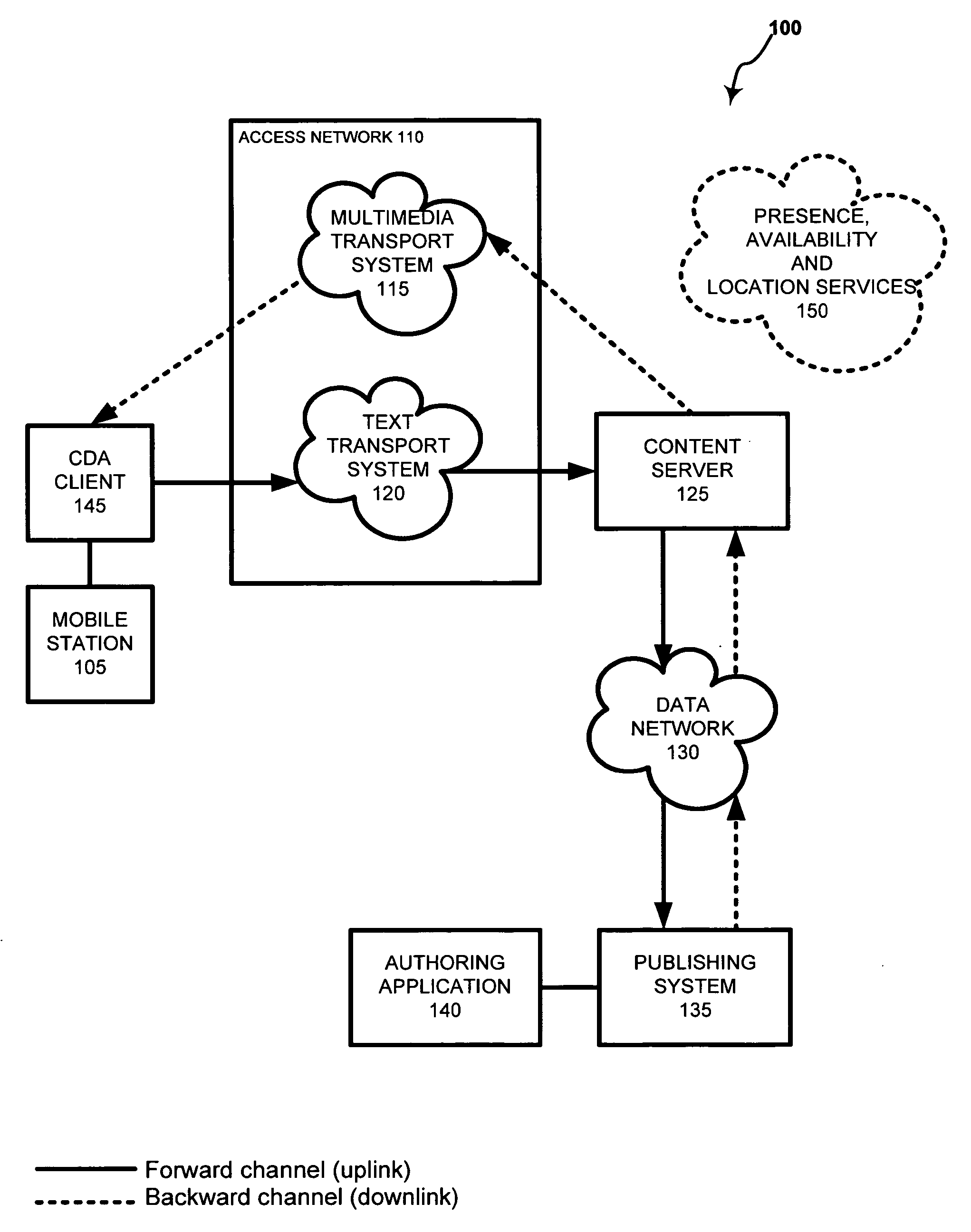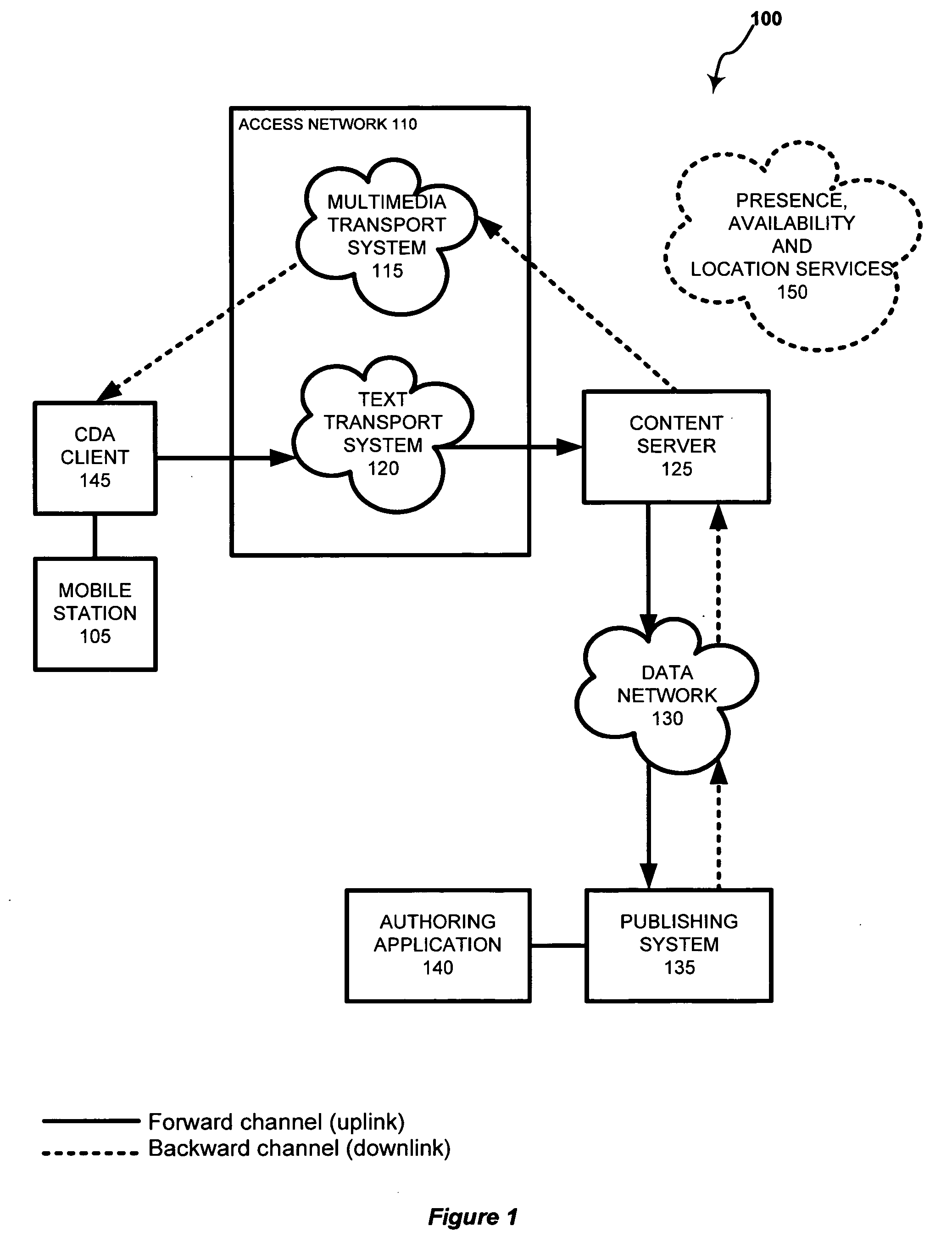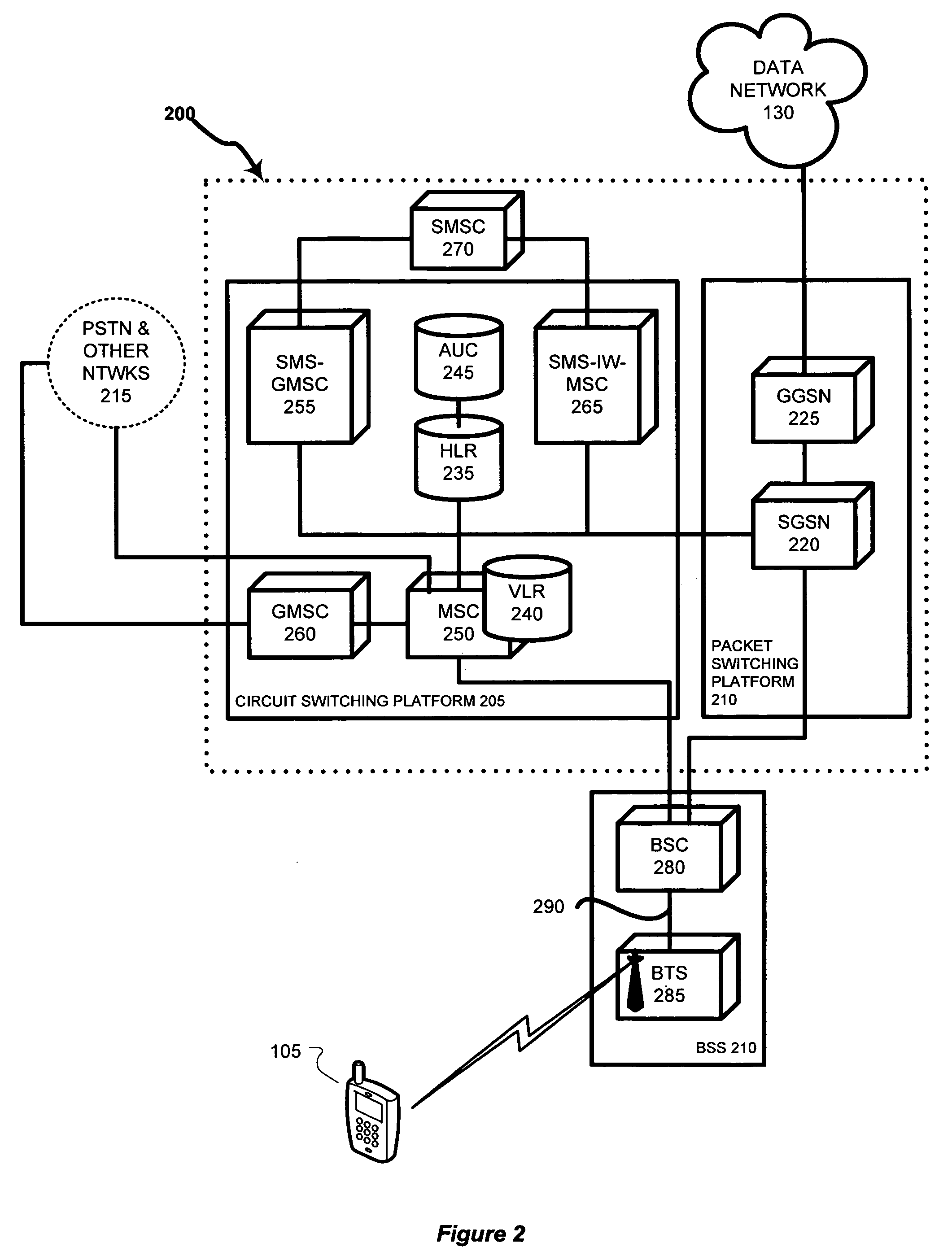[0011] The systems and methods of the various embodiments of the present invention address the shortcomings described above by delivering bundled advertising, directory assistance, and other multimedia content to a mobile communications device in response to a custom search query generated by the user of the
mobile station. The bundled content is delivered to the user as an interactive multimedia “
deck” in a wireless messaging format that can be administered and manipulated by the user. For example, preferred embodiments enable the user to view, store, retrieve, replay, and forward all or part of the content comprising a particular deck. Furthermore, content can be published in a variety of standard media (e.g., text, data,
executable code, and images) that can be retrieved by a user without being translated into a tagged format, such as
Wireless Markup Language. The systems and methods of the invention have the
advantage of utilizing common message stores thereby facilitating
interoperability with various mobile and fixed networks, as well as
the Internet. The invention also provides advertising, directory assistance, and other multimedia content in rich
interactive presentation formats that can include animated images, video, and audio, as well as text.
[0012] More specifically, a host, such as a directory assistance provider, provides a user of a
mobile station such as a
cellular telephone access to a
client-side
content delivery application (CDA client), possibly as a subscription service offering. The CDA client facilitates retrieval of content such as directory assistance data associated with one or more merchant providers of goods and services that are of interest to the user. The CDA client is a
software application or other
executable code that resides on the mobile
station or is otherwise activated and controlled at least in part by commands issued from the mobile
station.
[0017] The user can direct the CDA client to retrieve specific content by providing one or more keywords or phrases as search criteria, the search criteria including parameters such as: the user's current or target location (e.g.,
ZIP code, city / county / state; cross streets; landmarks (e.g., airports, hotels, highway access points, and area codes); category of goods or services desired; merchant name; merchant status (e.g., search only merchants offering special deals or search only stores that are currently open); and any other information that will limit the response to the search query to useful, practical, and desirable results. The search criteria can be spoken or manually entered using input devices.
Predictive text or
speech recognition technology can be implemented to reduce the amount of input required of the user. For example, the user may save favorite searches or recent searches may be cached for easy retrieval.
[0032] In certain other embodiments, the aforementioned pizza restaurant chain may buy priority to a preferred slot in the hit
list corresponding to this keyword, such that any user submitting “pizza” as search criteria receives a hit
list that contains decks that are ordered by priority. Purchase of the first slot entitles the purchaser to be the first pizza provider shown in the hit
list. Purchase of the second slot may be less expensive, and entitles the purchaser to be the second provider shown in the hit list. The decks may also be refined by additional search criteria, such that the first slot purchaser may be omitted from the hit list if the first slot purchaser has no restaurants that fit the remaining search criteria. For example, the user may specify “only restaurants that are open now” as additional search criteria. If the first slot purchaser's nearby restaurants are currently closed, the second slot purchaser may appear first in the hit list, followed by subsequent slot purchasers. In certain embodiments, only the first few slots are initially viewable by the user. The subsequent slots and / or merchants that are not participants in the bidding
system may be accessible to the user by issuing an additional command, such as by clicking on a “more” icon or issuing a voice command.
[0043] Alternatively, the merchant can be provided direct access to the publishing
system for “self publishing.” The host may also provide client
software as a self publishing interface between the merchant and the publishing system. Self publishing allows the merchant to easily and efficiently generate and publish new content according to short-term business needs. For example, on a slow
business day, a merchant may push a deck to targeted users notifying the users of a sale.
[0044] The host or merchant publishes multimedia content remotely by accessing the publishing interface. The publishing interface facilitates compilation of the individual components of the multimedia content into cards, and then into a deck. Compilation may occur on a client device maintained by the merchant or other publisher, which then transmits completed decks to the publishing system. Alternatively, the multimedia content may be forwarded as individual elements for compilation by the
content server. The publishing interface may generate instructions for the publishing system to compile the elements into the desired deck. Decks and / or publication information are preferably transmitted via a suitable data communication medium, such as a
wireless data network or
the Internet.
 Login to View More
Login to View More  Login to View More
Login to View More 


